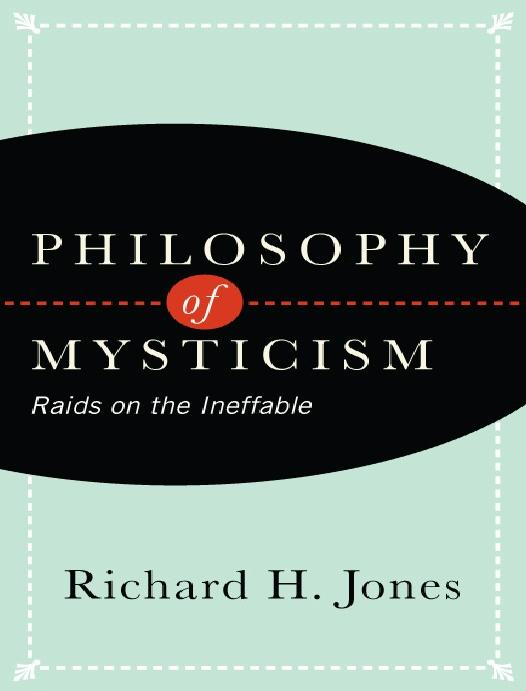Philosophy of Mysticism by Jones Richard H.;

Author:Jones, Richard H.;
Language: eng
Format: epub, pdf
Publisher: State University of New York Press
Published: 2016-06-01T16:00:00+00:00
6
Mysticism and Language
Mystics can be very confusing when it comes to language: they can write copiously and impressively on the subject of what they have experienced and then immediately turn around and claim that nothing can be said on that topic. How can the Daoist Laozi say “those who know do not speak, and those who speak do not know” while introducing the Daodejing, a book on the Way? To Plotinus, nothing can characterize the One, including calling it “one” (Enneads 5.3.13–14, 6.9.5). To Meister Eckhart, God is nameless, and to give him a name (as he appears to have just done) would make God part of thought and thus be an “image” (2009: 139). How can he say “God is above all names” (ibid.: 139, 153) when he identified the reality by name? Some reality is dubbed “God.” Shankara can claim that Brahman is unspeakable (avachya) and inexpressible (anirukta) while creating a metaphysical system about Brahman (Taittiriya-upanishad-bhashya 2.7.1). For him, even the words “atman” and “Brahman” are only superimpositions on what is real (Brihadaranyaka-upanishad-bhashya 2.3.6). Even “Brahman without attributes” (nirguna-brahman) is a concept devised in contrast with “Brahman with attributes” (saguna-brahman), and so even that concept must be denied as inapplicable to what is real—what is real is beyond both of these concepts, as are Advaita’s standard characterizations of Brahman as reality (sat), an inactive consciousness (chitta), and bliss (ananda) (Brahma-sutra-bhashya 3.2.22; Brihadaranyaka-upanishad-bhashya 2.3.1). For Shankara, the whole phenomenal realm of the root-ignorance (avidya) arises entirely from speech (Brahma-sutra-bhasya 2.1.27).
Why do mystics have trouble here that most people do not when they experience something phenomenal? Why is what is experienced considered inexpressible and even unnameable? It will be argued here that the tension arises for two basic reasons. First, conceptualizations must be advanced for even mystics themselves to understand what is experienced, but all conceptualizations are inherently dualistic (since they distinguish one thing from others), and so they all must also be jettisoned from the mind for a mystical experience to occur. In short, all conceptions must be both advanced and abandoned. Second, both the experiences themselves and what is experienced in these experiences seem “wholly other” than any worldly phenomena, and so any language applicable to worldly phenomena is deemed inapplicable to what is experienced. The states of consciousness in which the experiences occur are different from the mindful and ordinary states of consciousness in which mystics can depict what is experienced.
Download
This site does not store any files on its server. We only index and link to content provided by other sites. Please contact the content providers to delete copyright contents if any and email us, we'll remove relevant links or contents immediately.
The Lost Art of Listening by Michael P. Nichols(7169)
Why I Am Not A Calvinist by Dr. Peter S. Ruckman(4049)
The Rosicrucians by Christopher McIntosh(3374)
Wicca: a guide for the solitary practitioner by Scott Cunningham(3045)
Signature in the Cell: DNA and the Evidence for Intelligent Design by Stephen C. Meyer(2879)
Real Sex by Lauren F. Winner(2871)
The Holy Spirit by Billy Graham(2780)
To Light a Sacred Flame by Silver RavenWolf(2680)
The End of Faith by Sam Harris(2637)
The Gnostic Gospels by Pagels Elaine(2400)
Waking Up by Sam Harris(2334)
Nine Parts of Desire by Geraldine Brooks(2283)
Jesus by Paul Johnson(2230)
Devil, The by Almond Philip C(2207)
The God delusion by Richard Dawkins(2192)
Heavens on Earth by Michael Shermer(2190)
Kundalini by Gopi Krishna(2094)
Chosen by God by R. C. Sproul(2058)
The Nature of Consciousness by Rupert Spira(1983)
